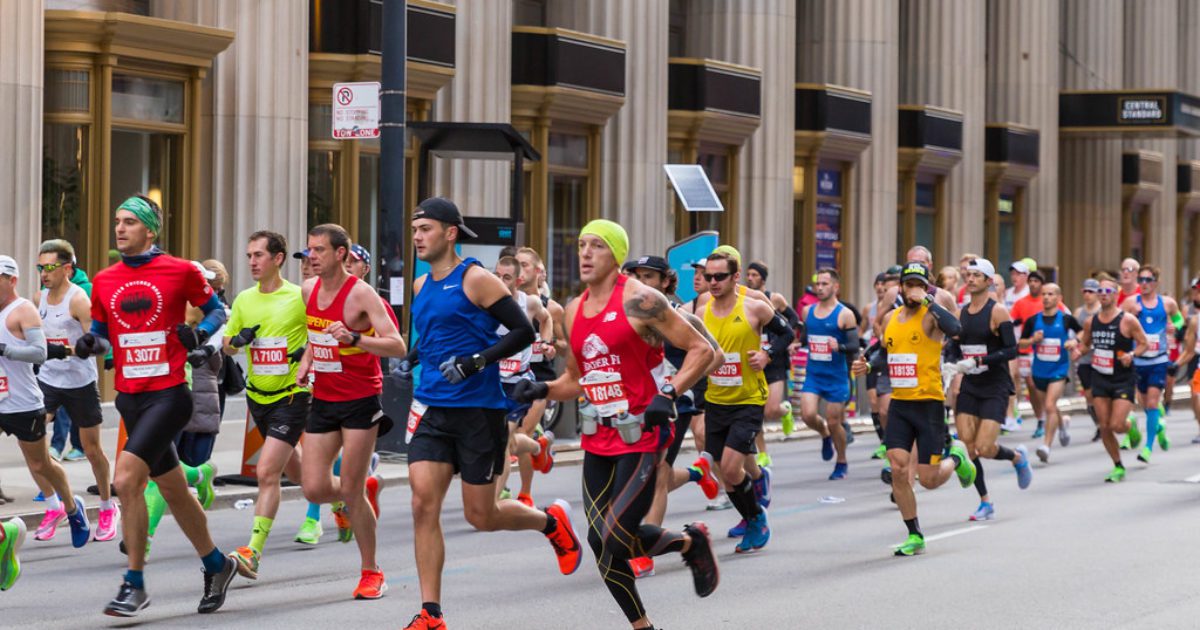Three participants suffered heart attacks and 33 others required hospitalization at last week’s Behobia-San Sebastián half-marathon, according to El Español.
125 other runners required medical attention.
The annual 20-kilometer race from Behobia to San Sebastián hosted 30,000 participants during this year’s edition.
Since the first race in 1919, six runners have lost their lives, including one in last year’s marathon who died of a sudden heart attack.
The last fatality prior to that was in 2015.
3 heart attacks, 33 hospitalizations at Spanish half-marathon.
Third tragic marathon this year ~ The media blame the weather. https://t.co/a9CnN8z1FI— Janey (@_Janey_Jay) November 24, 2022
From El Español (translated):
In a test that had 30,000 participants, there were 3 cases of heart attacks and 125 medical attentions, almost all due to heat strokes resulting from the unusual 26 degrees that were recorded during the race. Once again tragedy was touched, something that did occur in 2021 when a runner lost his life, in addition to registering two other cardiorespiratory arrests. In the last 20 years, the death toll stands at six. Data that have transferred the debate to the streets and social networks.
Theories about why these situations occur are various. The fundamental one is that, as in any massive event, it affects simple statistics. However, it is also true that it is increasingly common to find participants who are not sufficiently prepared for this type of challenge and who get carried away by fashion even at the risk of endangering their health.
26 degrees Celsius is 78.8 degrees Fahrenheit.
While the Spanish media called the number of casualties “unprecedented,” the temperature received the blame for the medical emergencies.
America’s Frontline News explained:
Media outlets have also blamed the heat for other marathons this year marred by tragedy.
In August two runners died and 74 were hospitalized during the Comrades Marathon in South Africa, reported America’s Frontline News.At least one of the fatalities suffered a sudden heart attack.
News media blamed the local weather, which was recorded as partly cloudy at 71.4 degrees Fahrenheit.
The tragedy follows a similar one in May when America’s Frontline News reported that sixteen people were taken to the hospital after running the Brooklyn Half Marathon, including four runners who collapsed and a 30-year-old runner who died of cardiac arrest. The media blamed the weather, which ranged from low 60s to high 70s with high humidity.
A meta-analysis conducted by York St. John University in 2016 reviewed sudden cardiac deaths in marathons in the 34 years between 1976 and 2010 and found that incidence rates ranged between 0.6 and 1.9 per 100,000.
The total number of runners in the Comrades Marathon was capped at 15,000, and around 20,000 runners reportedly participated in the Brooklyn Half Marathon. That would put the incidence death rate per 100,000 at 13.3 and 5 respectively.
However, not everyone believes the heat should be blamed for the high incidence of heart conditions.
"Marathon in northern Spain ends with 2 cardiac arrests and 125 athletes collapsing with severe fatigue symptoms, yet presstitutes have the audacity to blame it on heat stroke when the temperatures at the event never exceeded 26deg. The vaccine is a genocide bioweapon,” one individual commented on the event.
“Fit sporty people falling like flies with heart issues at semi marathon in Spain... because of heat in November! All normal, nothing to see,” wrote another.
Will the media blame these heart conditions on climate change?
That's what it appears they'll do.
The Behobia-San Sebastián half marathon isn't the only event where runners have suddenly collapsed due to heart conditions.
‘Large Amount of Unwellness’ at Amsterdam Marathon, Reportedly Multiple Resuscitations
Were these the result of climate change too?
Or, maybe it was an experimental drug linked to myocarditis, pericarditis, and a plethora of other severe adverse events?



Join the conversation!
Please share your thoughts about this article below. We value your opinions, and would love to see you add to the discussion!